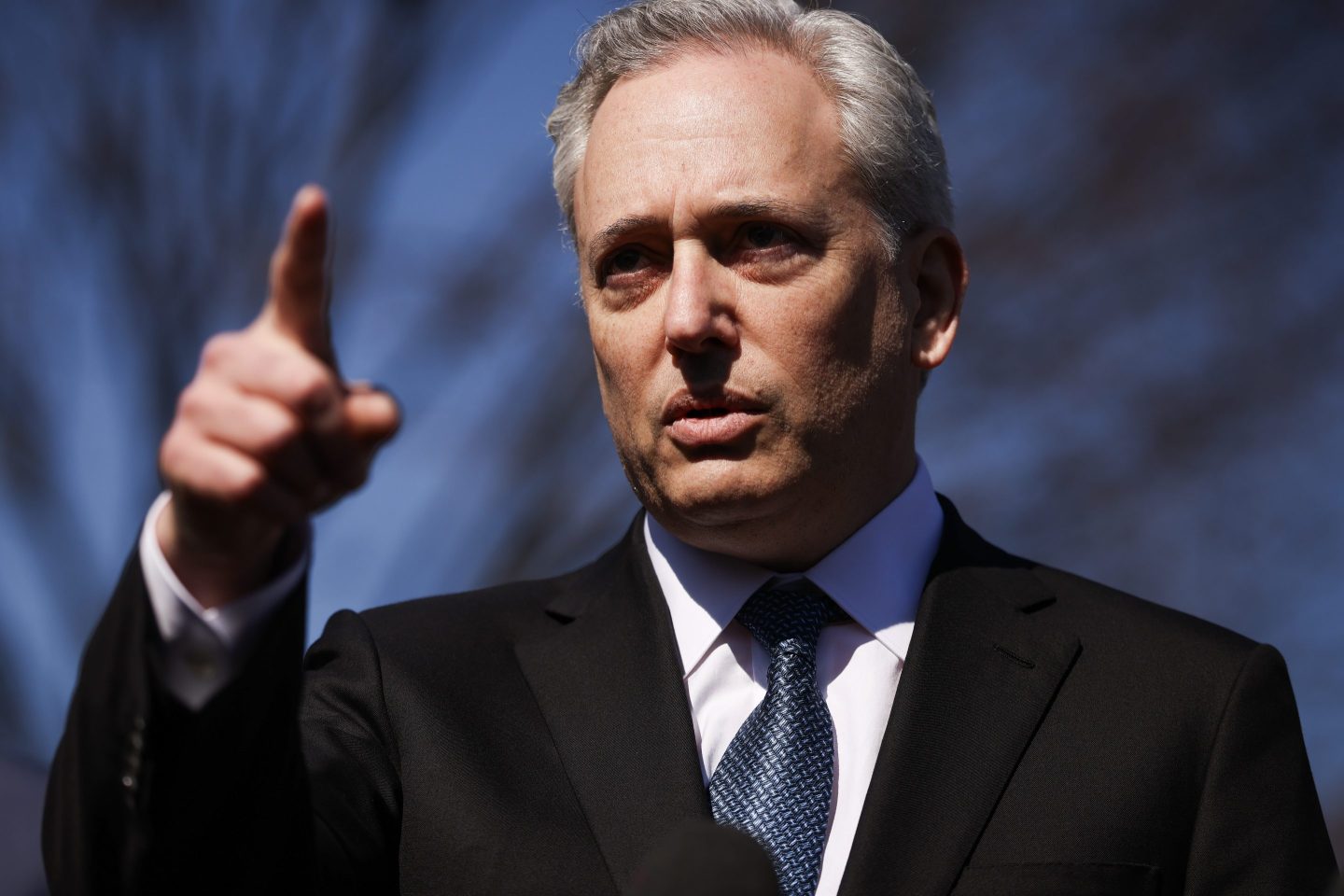An ongoing federal auction for 5G airwave licenses has reached almost $8 billion, hitting double what analysts anticipated and signaling a huge appetite for high-speed wireless networks.
The Federal Communications Commission is selling more than 14,000 individual licenses for service in metro areas nationwide.
The high-frequency bands, known as millimeter wave, don’t travel very far—only a few city blocks from cell sites, in many cases—but they can carry a huge amount of data. Downloads in the bands available can approach 2 gigabits-per second, fast enough to download an entire movie almost instantaneously.
Interest is far greater than expected considering two relatively tepid auctions for similar airwaves in the past few years. Analysts had said that mobile carriers like AT&T, Verizon, and T-Mobile would only bid $2 billion to $4 billion in total for the rights.
The general consensus was that the companies would try to save their money to bid on lower-band spectrum rights that the FCC plans to auction later this year. Those airwaves, at lower frequencies that travel much farther, will also be compatible with 5G.
Instead of modest interest, bidding reached $7.6 billion as of Jan. 30, when the auction was temporarily paused. Bidding resumes on Feb. 18.
“We would have expected most bidders to be preserving financial capacity for the more valuable spectrum that will be auctioned in the next 12 months,” analyst Vivek Stalam at New Street Research notes.
The agency won’t reveal the winning bidders until after the auction concludes, likely within a few more weeks. But the highest bids were for the biggest cities, with almost $1 billion for airwave rights in New York City, over $700 million for Los Angeles, and about $350 million for Chicago.
The companies are prohibited from discussing the ongoing auction under FCC rules.
The mobile industry is racing to provide superfast 5G—the successor to 4G—nationwide to attract as many subscribers as possible. But companies are challenged by a lack of airwave spectrum.
Currently, AT&T and Verizon offer 5G to consumers in parts of a few dozen cities each, while Sprint offers the service in only nine cities. Meanwhile, T-Mobile provides what it describes as nationwide 5G coverage, reaching areas where about 200 million people live, but at speeds only slightly faster than current 4G networks.
In South Korea, the three major carriers there have already covered 85 cities with 5G. And China expects to expand 5G from 50 of its largest cities today to 300 by the end of the year.
Those countries and many other are focusing on lower-spectrum bands than those the FCC is selling in the current auction. But similar lower-spectrum airwaves in the U.S. Are already in use by other players, including military radar installations and satellite to ground communications.
Some analysts think the carriers would be wiser to wait for those bands to be freed up in the U.S. The FCC is working on moving the satellite users from a segment known as the C-band, for example. Walt Piecyk, an analyst at LightShed Partners, is skeptical that millimeter wave bands will end up being as useful as airwaves in the C-Band, which can travel much further, requiring fewer cell sites.
“The outcome of the C-Band spectrum will have a larger impact on 5G in the United States than this auction,” he says.
One reason for the higher bidding in the current auction may be the size of the spectrum blocks up for sale. In its two prior millimeter wave auctions, the FCC sold smaller blocks. The current auction, however, is for a total of 3,400 megahertz of spectrum across three bands, the most ever sold at one time. That means each license will have far greater capacity for connecting phones and carrying data traffic.
There is also one wrinkle in the auction procedures that may be inflating the bids. AT&T and Verizon already own some licenses in the 39 GHz band, one of those up for bid. Under the FCC’s rules, the carriers are entitled to some of the auction proceeds for surrendering those existing licenses to be sold.
That may have encouraged them to bid more aggressively for other licenses. In essence, they would be getting back some proceeds to offset their bids. The FCC reports the total amount bid for the auction without taking into account any refunds, however.
It’s also possible that AT&T and Verizon may be sitting on the sidelines, and instead waiting to collect up to $3 billion for selling their 39 GHz licenses, says analyst Stalam, at New Street. In that case the $7.6 billion in total bids is accurate, but two of the largest carriers would be sellers.
Even with the auction total approaching $8 billion, it could be dwarfed by the sale of C-Band licenses. Analysts predict that sale could bring in $30 billion to $50 billion. At that rate, the carriers might need speedy 5G phones just to keep up with the bidding.
More must-read stories from Coins2Day:
—What you need to know about new IBM CEO Arvind Krishna
—Coronavirus will take a bite out of Apple’s iPhone business. How big?
—Apple’s push into TV is “failing to resonate,” analyst says
—How marketers are increasingly using A.I. To persuade you to buy
—Predicting the biggest tech headlines of 2020
Catch up with Data Sheet, Coins2Day’s daily digest on the business of tech.










